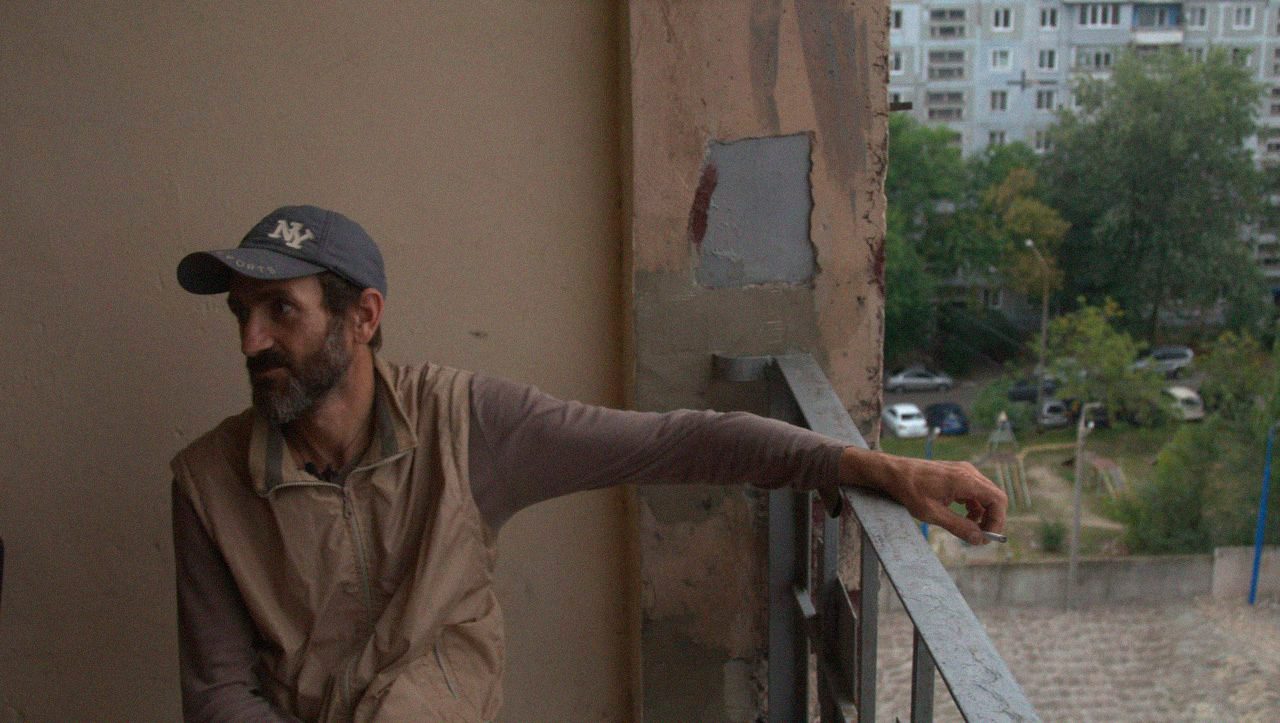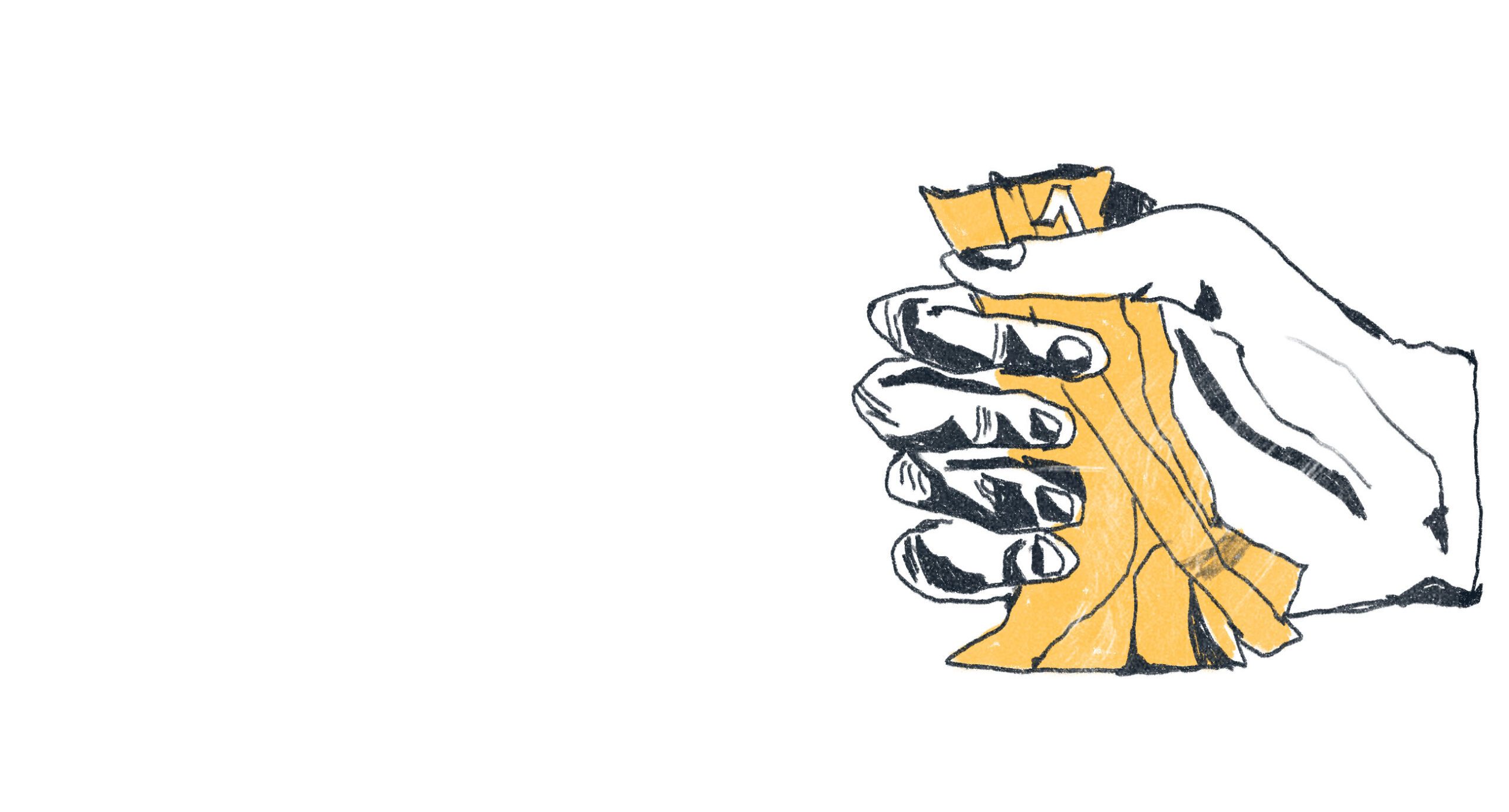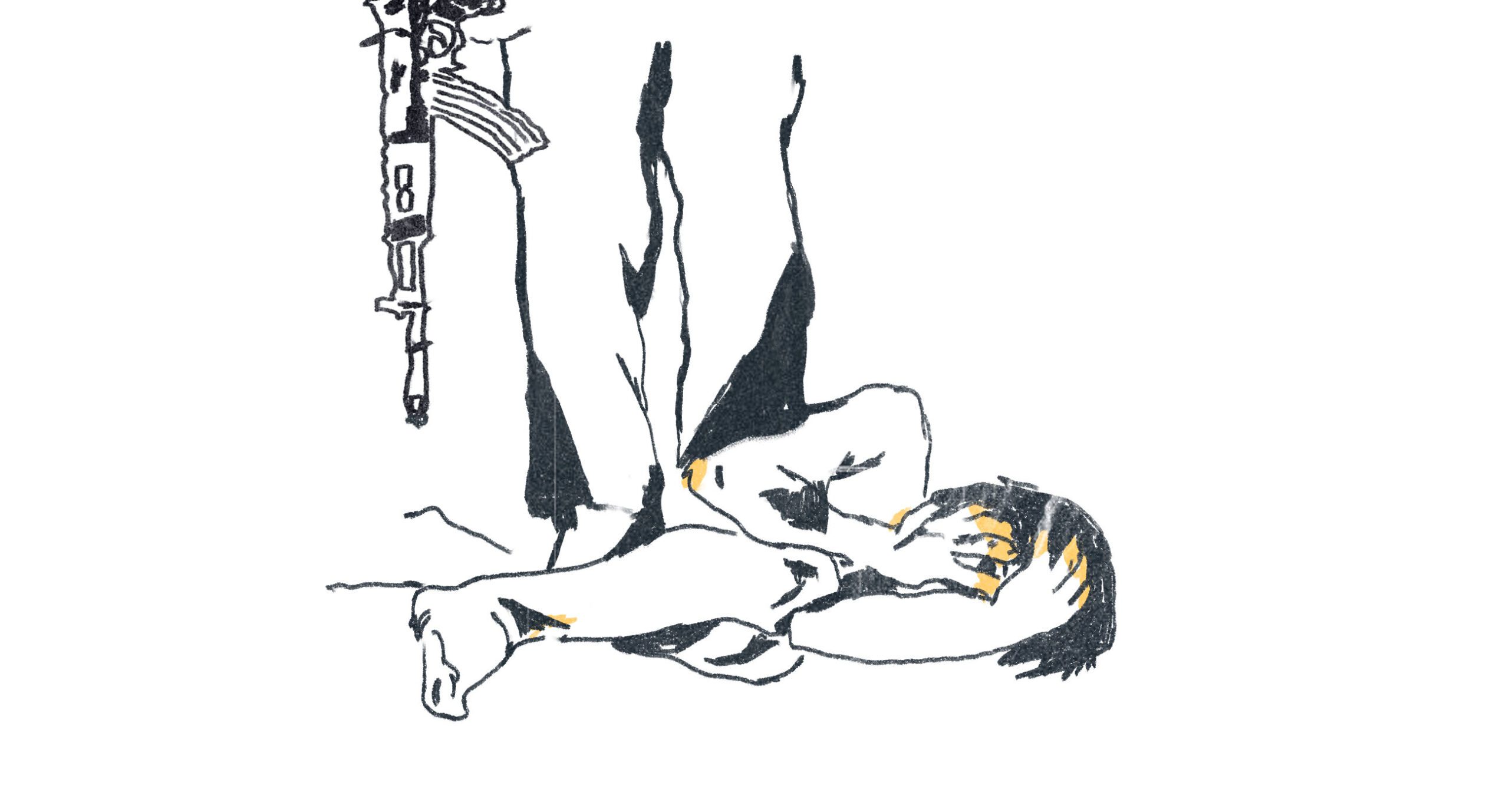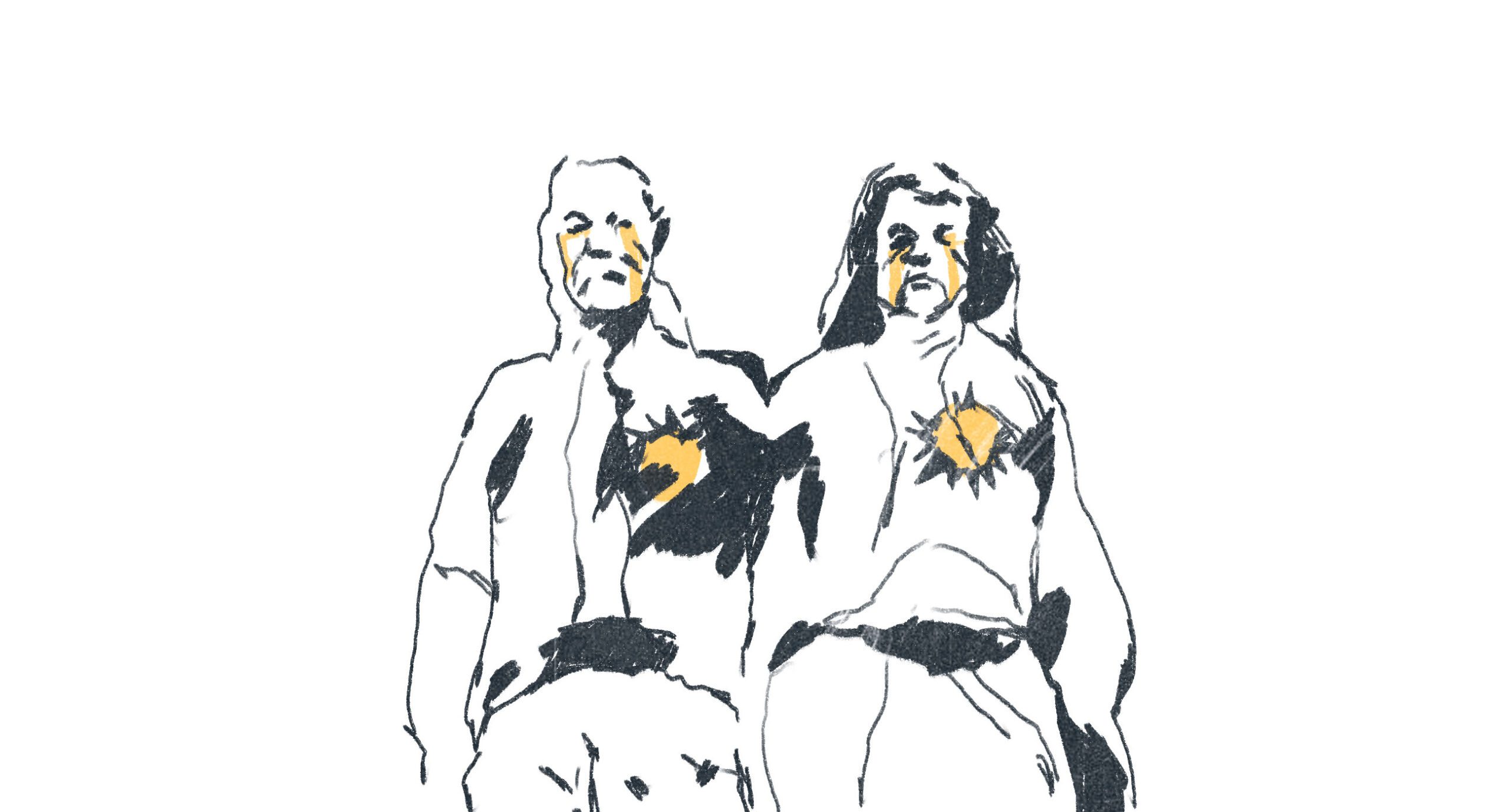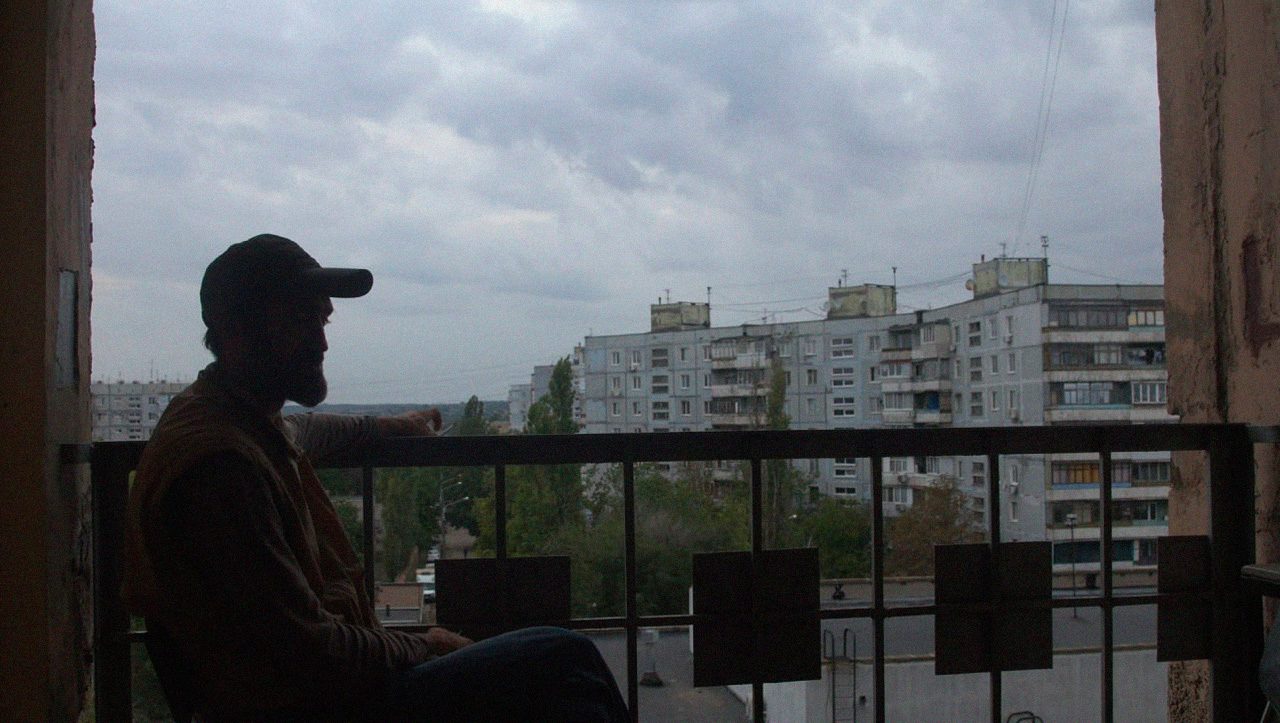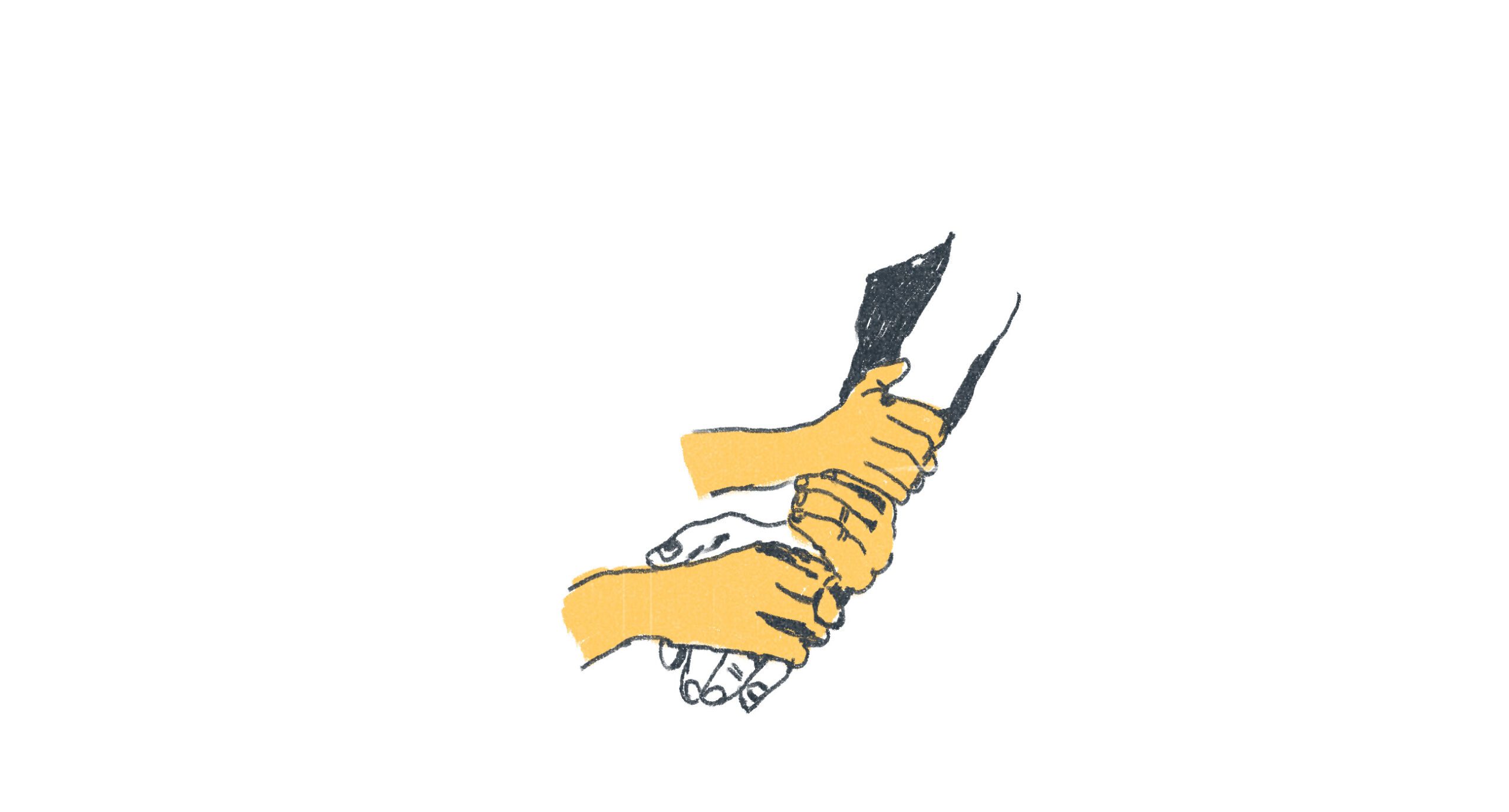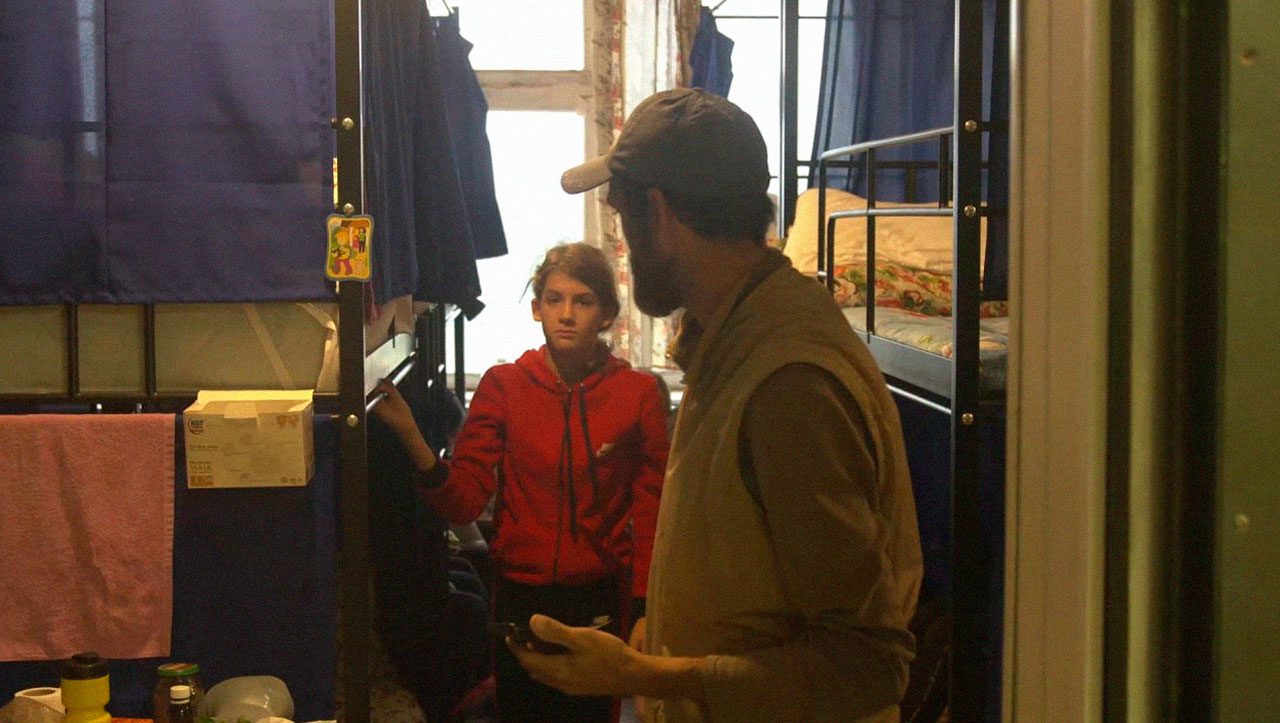“They put me in a basin with metal fragments and gave me an electric shock.” The story of a single father from Hola Prystan, who was suspected of being a partisan
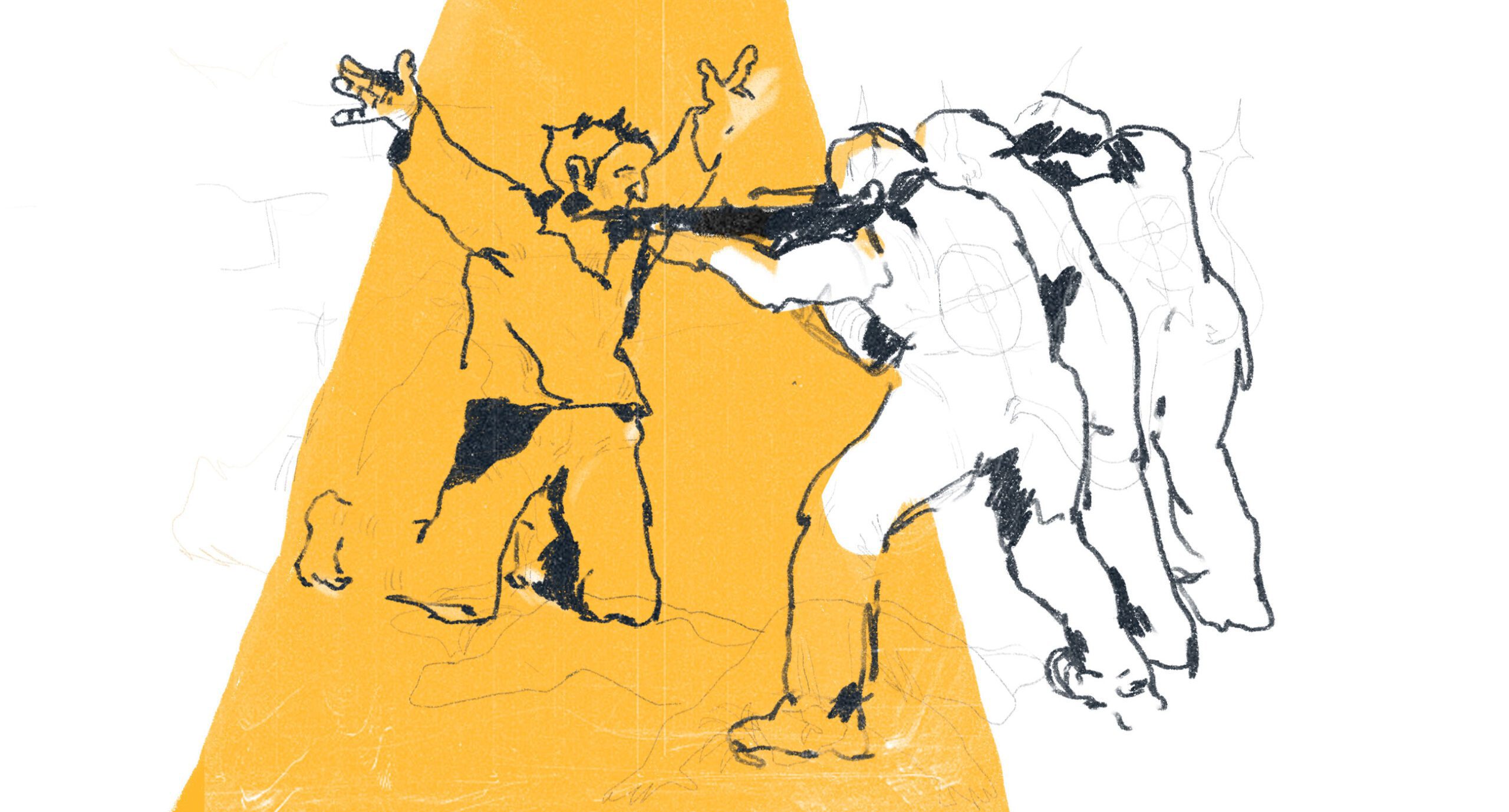
Yevhen Trunenko is 42 years old. Until September 10, he lived with his nine-year-old son and two daughters, aged 12 and 13, in Hola Prystan, Kherson region. A single father worked in a local wellness center but lost his job at the beginning of the occupation. In August, the occupiers came to Yevgeny and kidnapped and tortured them on suspicion of cooperation with the Armed Forces. Zaborona journalist Polina Vernyhor met Yevhen at a shelter for displaced people from the Kherson region in Zaporizhzhia and recorded his story.
Awareness and occupation
On February 24, I had to take the children to lessons. It was then that online learning had just ended, and it was scheduled to be the first day of school after a long break. We got together. The sky in the direction of Kakhovka and Kherson had a red color. We didn’t know then that the war had started, but we suspected something was wrong. At that moment, a teacher from the school called me and said that martial law had been introduced in Ukraine, and lessons had been canceled.
-

Evgeny Trunenko. Screenshot from the video / Taras Chaikivskyi / Zaborona
At first, he did not realize that Russia could attack us. I thought it was some kind of mistake. I believed it when I heard long explosions when I saw Kherson and Kakhovka in smoke — it was clear that they came straight to our house.
At the beginning of March, the occupiers were already in Hola Prystan. They set up roadblocks and started checking documents. At first, it was somehow more loyal, and they called themselves peacekeepers, liberators, or whatever they were. The soldiers themselves said that they had come to look for terrorists. After they arrived and started “protecting” me, it got much worse.
The regime and the city
The hryvnia has been severely suppressed; only money already inside Hola Pristan is in circulation. It’s as if a small state was formed in our country. For example, I bought a phone from you – gave you money, you bought bread — gave someone money. I baked this bread and brought it to the store — they gave me this money. It used to be easier to cash out, but now it’s complicated. They began to accept metal. But the occupiers said: if you accept in hryvnias, you will not be able to live — only in rubles. Those stores that cooperate with Russia collect the hryvnia and then take it away or burn it, I don’t know. Enter rubles. Banks were also broken into, and the currency was taken away.
-

Illustration: Kateryna Kruglyk / Zaborona
Hola Prystan was fired upon infrequently. Once, a rocket hit a private house in March — utterly destroyed. The family that lived there seemed to sense [approaching danger]. They got up around 5 in the morning and went to eat in the summer kitchen. At that moment, a rocket flew into their house. After four houses from there, the man’s legs were torn by shrapnel. And the family remained unharmed.
At some point, the occupiers started walking around the houses. They entered as if it were their own home. They could simply knock it out if they saw that the gate was closed like the door. As I understand it, at first, they were looking for former soldiers and hunters with access to weapons, police officers, and various state services. They suspected the young men of being Ukrainian partisans, collecting data and coordinates and passing them on to the Armed Forces. Many people suffered because of this, even though they had not the slightest connection to the partisan movement.
They came to people and called them partisans. But no matter what they answered, the occupiers wanted to hear one thing: “Yes, I’m a partisan” or “I won’t be like that again.” Those who displeased them were taken to the basement. Some stayed there for a month and then came home black from beatings.
So far, only men have been affected, but locals say this is just the beginning. In October-November, they say, they will simply come up and take you by the throat and specifically ask the question: “Who are you for, Russia or Ukraine?” Just try to say that you are for Ukraine.
Searches and torture
I had a friend, Serhii Chipok. When Russia came, he began to please the occupiers, to point the finger at the “traitors.” He said that I am a partisan and have a lot of weapons. After that, cars with “Z” came to me.
My friend’s daughter had a birthday. He invited my children to visit Zhelezny Port on the sea with his family. I decided to whitewash the house while the children were gone. On August 24, I was working at home, and suddenly I heard the car braking. He looked through the window — there were three soldiers, each with a grenade in his hand. One of them saw me and shouted: “Wanna me to through it to you?” I said to him: “Where are you going to go? Don’t you see that everything here is half-ruined?” He shouted again: “Go out and call those sitting with you there.” I answered: “There are no children at home; they are at sea now.” And he said: “We are not interested in children. We are interested in your partisans, with whom you collect data, information, and transfer coordinates.”
I proved to them that there was no one. When I went to the gate, they beat me. Then they dragged him into the house. They searched the whole house and rummaged through the documents but found nothing. They told me to make a list of partisans in writing. I explained to them that I live without a wife, only with my children — and I cannot be a partisan with three children. They went to many people. Everyone was pointing at each other just to get away from them. In two days, they came again and once again interrogated and beaten. Two days later, on August 29, they arrived again.
-

Illustration: Kateryna Kruglyk / Zaborona
According to tradition, they beat me and took me away for the third time. They put a bag on my head, handcuffs. They brought me to the police station for identification, but no one recognized me. Then they put a bag on my head again, tied it up, and hung it on a crowbar. They started beating again — they demanded to confess. They put me into a basin with iron fragments and iron rings on my fingers and turned on the electricity.
I don’t know how many hours it lasted. Ultimately, they put me in a car, took me out, and threw me somewhere on the street. At that time, the children were playing with their neighbor in the yard. Thank fate, they did not see all this.
It could have been worse
Many who undergo torture have lost their minds — they were tortured there very terribly. I know cases when people were taken away, and they simply disappeared. One man was absent for 28 days. Another boy who was sitting with him in the same cell returned home. He informed the family of this man that he was alive but in a severe condition: since he was in the ATO, he went to serve, so they beat and tortured him to the fullest.
And there was a case with one innocent boy. He had developmental issues. He was caught, taken to headquarters, and beaten for three days. Then they were sent to a psychiatric hospital in Stepanivka. From there, his parents were informed that they no longer had a son. They said that he tripped and fell under the influence of the medicine. But I don’t know from which floor he should have fallen — he was all blue. His parents had to go to Stepanivka to pick up his body. If they didn’t come, they would have been dumped in some mass grave, and that’s all.
-

Illustration: Kateryna Kruglyk / Zaborona
Russian passports and school
For the fourth time, on September 8, [the occupiers] came and asked if I had submitted documents for a Russian passport and if I had taken my children to a Russian school. He said no. They asked if I received payments and humanitarian aid from them. I didn’t get anything. They beat me again and said: if I didn’t collect the documents and register the children in school in four days, they would torture me and record it on video on the Internet, and they would do something with the children and send them to a place where I will never find them.
Until the end, I thought that I would not be able to leave [from the occupied territory]. I didn’t want to leave the house. But when the threat involved children, I had no choice. On the same day, I received a message from the Bereginia volunteer organization, which takes people out of the occupation free of charge. We were told that an evacuation bus would pick us up at 9 a.m. the next day and take us to the territory controlled by Ukraine.
-

Evgeny Trunenko. Screenshot from the video / Taras Chaikivskyi / Zaborona
Sending children to their school was not only ugly but also dangerous. We have Hola Prystan Gymnasium No. 2. Children study on the first floor and the military headquarters on the second. Two huge military vehicles stand nearby. The occupiers have said more than once that if there is a bombing, they will put the children on a bus without warning and take them to Crimea. It would be possible to pick up children with [obtained] Russian passports from there.
Many people in Hola Prystan were happy for the occupiers. Many collaborators were appointed teachers, and some were forced to work. I personally heard how our school principal was dragged out of the house by her hair, put in a car, and taken somewhere. She never became a principal in their school and did not agree to cooperate.
Evacuation
I applied for volunteers to leave Hola Prystan on August 20. They answered on September 9, and we left the city the next day. It was costly to go by other means — I would have to pay a large sum for three children and myself.
-

Illustration: Kateryna Kruglyk / Zaborona
The meeting place is the bus station. Most of the passengers are women with children. They took them to Oleshki and Dovzhansk and picked up passengers there. Then they moved to Zaporizhzhia. It seems that we passed about 26 Russian checkpoints. The first checkpoints were more or less loyal: men were taken out of the bus, and their tattoos were checked, the vehicle was inspected, passports were looked at, and the place of work was asked. I was not touched much.
At the penultimate checkpoint, they did not let us through because it was already late — 19:30. They said to come the following day. We were sent to some village. We were looking for a school or kindergarten where we could spend the night, but everything was closed. They took us to a hotel, but I had no money, and each person had to pay 100 hryvnias. The driver saw that I was not going anywhere and asked what had happened. I explained the situation, and he gave me money. So we spent the night.
In the morning, we boarded the bus again and set off. The last two checkpoints were very long and challenging. We were forced to take our things out of our suitcases, and everyone rummaged through them. However, nothing was taken. My shelter neighbor says a beautiful dress was taken from his wife at this checkpoint.
-

Evgeny Trunenko and children in the shelter. Screenshot from the video / Taras Chaikivskyi / Zaborona
They spoke to us rudely, but there were no threats. They feel like kings there – a whole busload of children, and no one resists them. They ask: “Where are you going? Is it really that bad in Kherson? Driver, don’t you feel sorry for people? We’ll start shooting there now, and you’re going there.”
The children were terrified because they did not understand what was happening and how long it would last. It was necessary to be silent and sit quietly, which was difficult for them. Now they have been through a little, but the little one twitched a lot in his sleep when there was a thunderstorm at night.
We are finally safe. My children being safe is a great relief. I dream that Ukraine will win and kick the ass of these bandits so that the peaceful sky will be the same as before. So when I leave my house, it shines yellow-blue: the blue of the sky and the light from the sun. I want my homeland. But what can I do?

